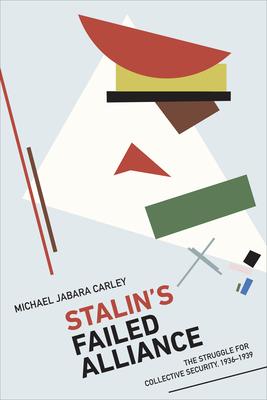In the spring of 1936, the Soviet effort to build an anti-Nazi alliance was failing. Stalin continued nevertheless to support diplomatic efforts to stop Nazi aggression in Europe. In Stalin's Failed Alliance, the sequel to Stalin's Gamble, Michael Jabara Carley continues his re-evaluation of European diplomacy during the critical events between May 1936 and August 1939.
This narrative history examines the great crises of the pre-war period - the Spanish Civil War, Anschluss, and Munich accords - as well as both the last Soviet efforts to organize an anti-Nazi alliance in the spring-summer of 1939 and Moscow's shocking volte-face, the signature of the Nazi-Soviet non-aggression pact.
Carley's history traces the lead-up to the outbreak of war in Europe on 1 September 1939 and sheds light on the Soviet Union's efforts to organize a defensive alliance against Nazi Germany, in effect rebuilding the anti-German Entente of the First World War. The author argues for the sincerity of Soviet overtures to the western European powers and that the non-aggression pact was a last-ditch response to the refusal of other states, especially Britain and France, to conclude an alliance with the USSR against Nazi Germany. Drawing on extensive archival research in Soviet and Western archival papers, Stalin's Failed Alliance aims to see the European crisis of the 1930s through Soviet eyes.
